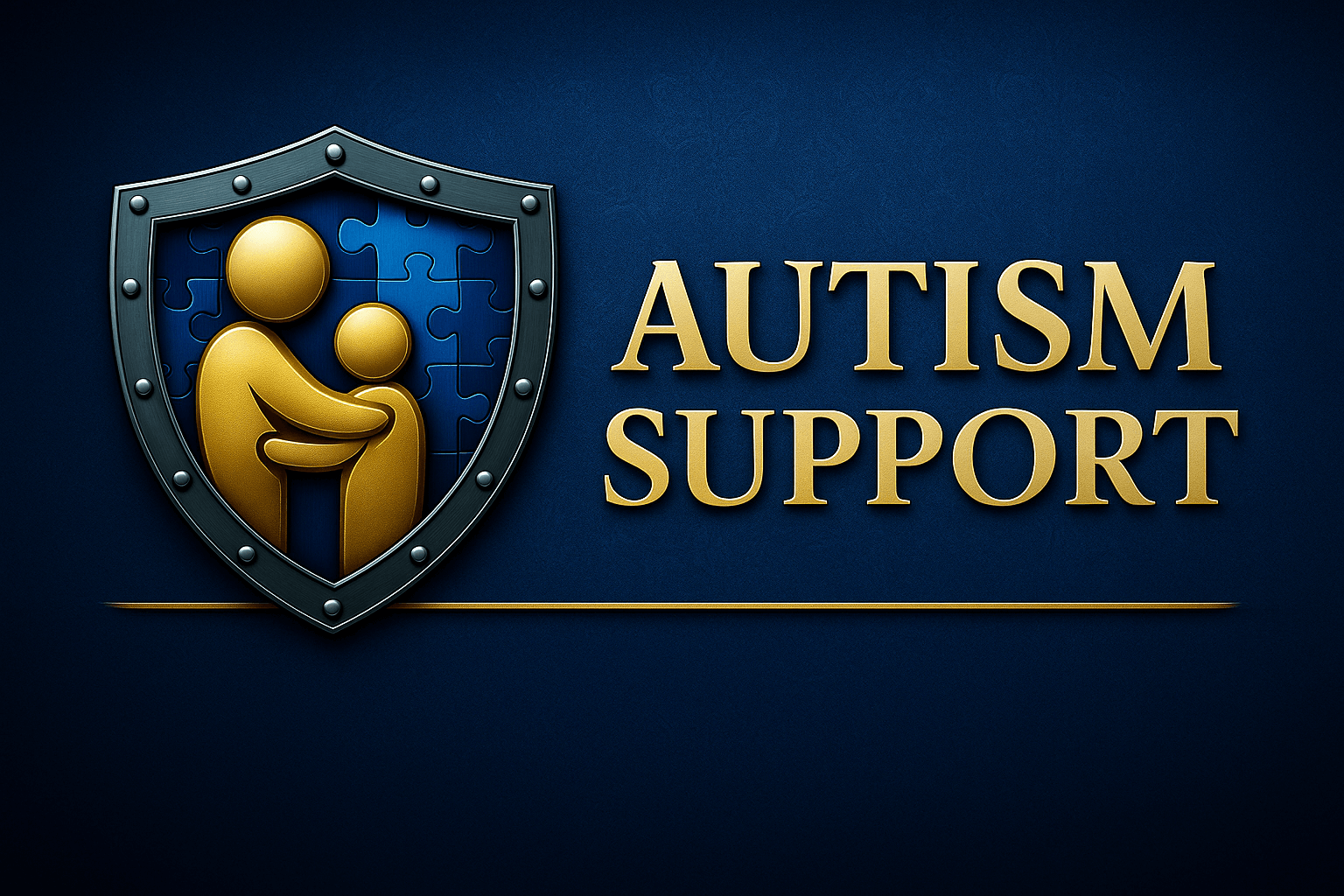

Autism Behavioral Support
Neurodivergent-affirming, culturally responsive care for ages 5–25
Autism Spectrum: Strengths, Supports, & Next Steps
Autism isn’t a deficit—it’s a different way of processing the world. At SHIELD Psychiatry, we lean into strengths while supporting communication, sensory regulation, flexibility, and independence. We partner with families, schools, and care teams to help every young person thrive.
Who We Support
- Children and teens exploring diagnosis or needing a strengths-based plan
- Youth experiencing sensory sensitivities, transitions/meltdowns, or rigid routines
- Students seeking IEP/504 advocacy, social-communication tools, or executive-function help
- Young adults preparing for college, work, and independent living skills
- Families wanting collaborative, neurodivergent-affirming care—without shame or alarm
What We Offer
- Telehealth evaluations & strengths-based diagnostic formulation (DSM-5-TR context)
- Functional behavior plans for home/school with clear, compassionate strategies
- Parent coaching for routines, transitions, meltdown prevention & co-regulation
- School collaboration—letters for IEP/504, accommodations, progress notes
- Executive-function supports (organization, time-blindness, task initiation)
- Transition planning for college/career, health management, and self-advocacy
Strengths & Support Areas (At a Glance)
Identify triggers, add calming inputs, and modify environments to reduce overload.
Strength-based social scripts, visual supports, and advocacy language that feels authentic.
Predictable schedules with “choice points” to practice flexibility without overwhelm.
Task breakdown, time-estimating, visual timers, and energy-based planning.
What to Expect at SHIELD
- Step 1: Collaborative history + strengths inventory; define goals with the family
- Step 2: Functional behavior mapping & sensory profile; initial plan within 1–2 visits
- Step 3: School coordination (as desired), visuals & scripts, and coaching check-ins
- Step 4: Progress tracking, independence skills, and transition planning
We work alongside speech/OT/ABA and pediatric teams; we’ll coordinate so care feels seamless.
FAQs
- Is your care neurodivergent-affirming? Yes—no “fixing” identity. We reduce distress, expand access, and honor strengths.
- Do you provide documentation? Yes. We write letters for IEP/504 and accommodations as appropriate.
- Do you use medication? Only when clearly indicated for co-occurring conditions (e.g., anxiety, ADHD, sleep).
Autism Spectrum Disorder (ASD) FAQ & Resources
-
Autism Spectrum Disorder (ASD) is a lifelong neurodevelopmental condition that affects communication, social skills, and behavior. It exists on a spectrum, meaning individuals experience a wide range of abilities, strengths, and challenges.
-
✔ Social Challenges – Difficulty understanding social cues, maintaining conversations, or making eye contact
✔ Communication Differences – Delayed speech, echolalia (repeating phrases), or preference for nonverbal communication
✔ Repetitive Behaviors – Hand-flapping, rocking, strict routines, or fixations on specific interests
✔ Sensory Sensitivities – Over- or under-reacting to lights, sounds, textures, or touch
✔ Strong Preference for Routine – Discomfort with changes or transitions in daily activities -
Autism is diagnosed through a comprehensive evaluation, which includes:
✔ Developmental history and behavioral assessments
✔ Standardized screening tools and parent/caregiver input
✔ Observations of social, communication, and sensory patternsAt SHIELD Psychiatry, we provide telehealth-based autism screenings to assess and guide families toward appropriate support.
-
There is no single cause of autism, but research suggests that genetics and early brain development play a key role. Autism is not caused by vaccines, parenting styles, or environmental factors.
-
Autism is not a condition that needs to be “cured”, but early intervention and support can improve communication, social skills, and daily functioning. Treatment may include:
✔ Behavioral Therapy (ABA-Informed Strategies) – Helps develop coping skills and adaptive behaviors
✔ Speech & Communication Therapy – Improves verbal and nonverbal communication
✔ Occupational Therapy (OT) – Supports sensory integration and motor skills
✔ Social Skills Training – Teaches social interaction strategies in structured environments
✔ Parent & Caregiver Coaching – Helps families understand and support their child’s needs -
Yes! Many individuals are diagnosed with autism in adulthood, especially those with milder symptoms or those who learned to mask their traits in social settings. If you suspect you may have autism, an evaluation can provide clarity and access to helpful support strategies.
-
✔ Use clear, consistent communication
✔ Respect sensory needs and provide accommodations
✔ Encourage self-expression through preferred communication methods
✔ Offer structured routines to create predictability
✔ Support their strengths and interests -
You can schedule an autism evaluation or behavioral support consultation by filling out our online form or contacting us directly. Our telehealth services make it easy and accessible to receive expert guidance from the comfort of your home.
Autism Resources & Support
Strengths-based, evidence-informed tools for families, autistic adults, and clinicians.
Trusted Autism Organizations & Networks
-
Autism Society
National chapters, services, helplines, and local supports.
-
AANE (Asperger/Autism Network)
Groups, coaching, and resources for autistic adults & families.
-
National Autism Association
Safety, wandering prevention, and family support programs.
-
Autism Speaks
Toolkits, services directory, and research updates.
Autism-Friendly Tools & Apps
-
Proloquo2Go
Robust AAC communication for nonverbal users.
-
ChoiceWorks
Visual schedules and emotion coaching for routines.
-
Floreo VR
Virtual reality lessons for social and life skills.
-
Visual Schedule Planner
Task organization and structured daily planning.
Books for Parents & Individuals
-
The Reason I Jump — Naoki Higashida
First-person insight into nonverbal autism.
-
Uniquely Human — Barry M. Prizant
Strengths-based perspective and practical strategies.
-
The Out-of-Sync Child — Carol Stock Kranowitz
Understanding sensory processing differences.
-
NeuroTribes — Steve Silberman
History and evolving understanding of autism.


